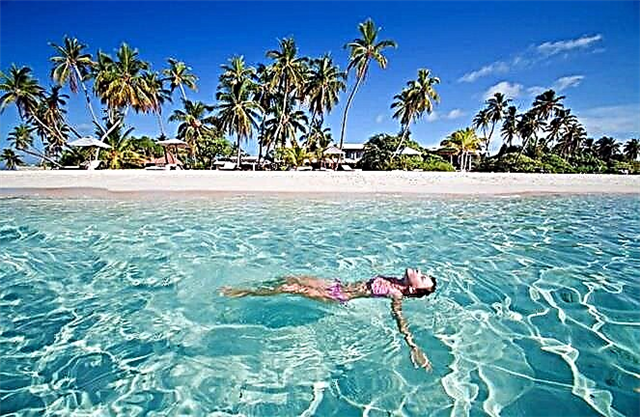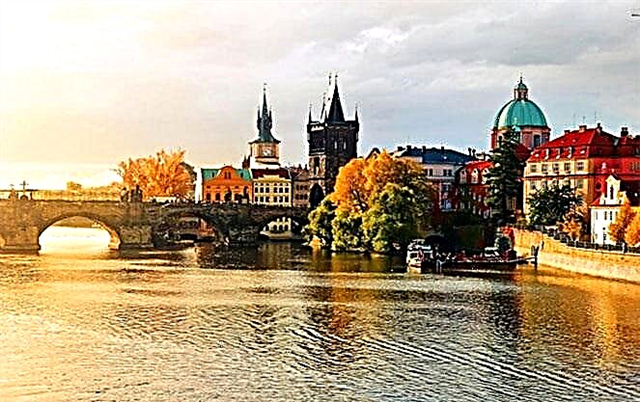The Czech Republic is a country not only with a rich culture and beautiful nature, but also with deep traditions in the field of education. The modern education system in the Czech Republic allows boys and girls from the Russian Federation and the CIS countries to start their studies in Europe after the 9th grade. The resulting document on secondary, vocational or higher education is quoted all over the world and opens up broad prospects.

Structure of the Czech education system
Currently, the education system of the Czech Republic includes the following levels:
- preschool education (kindergartens);
- compulsory schooling (primary and secondary school);
- high school or secondary vocational education (colleges);
- higher education (institutes and universities).
Preschool education in the Czech Republic is optional. Primary and secondary school education lasts 9 years. After graduating from high school, graduates have the opportunity to enter the country's universities. You can get a profession and start working by graduating from a secondary vocational school.
It should be noted that in the Czech Republic it is allowed to study foreign citizens both on a budgetary and on a paid basis.
Features of preschool education in the Czech Republic
Attending kindergarten is not compulsory, however, those who wish can enroll their child in nursery groups from the age of 3.
State preschool institutions provide their services free of charge, but the availability of free places in them is a big problem.
The admission fee for a commercial kindergarten is around € 270–580 per month. The total amount often depends on the area in which the kindergarten is located.

Czech kindergartens are also open to young foreigners. To enroll a child in kindergarten, you will need the following documents:
- police certificate of stay in the country;
- Residence permit or permanent registration document;
- medical certificate.
The daily schedule in kindergarten is 17 hours. The program of classes includes walks in the fresh air, developmental classes, excursions, teaching the basics of a foreign language.
At the request of the parents, the child can attend the institution for only half a day. Opening hours: daily, except weekends. In July and August, kindergartens are closed - only 1-2 attendants work in the area.
How to get secondary education in the Czech Republic
Since 1949, a law on compulsory schooling has been in force in the Czech Republic. Thus, all children in the country are obliged to attend elementary school of the first level from 6 to 10 years old. After that, they can continue their studies until they complete secondary education in one of the following educational institutions:
- elementary school of the second level (6-15 years old);
- gymnasium (11-19, 13-19 or 15-19 years old);
- secondary technical or secondary vocational school, in which students also receive a profession (15-18/19 years);
- vocational secondary school teaching a particular profession (19-21 years old).

At the end of the full course of study in secondary school, students take exams and receive a certificate of maturity (Maturitní Vysvědčeni), which gives the right to enter a university. The compulsory examinations at the end of secondary school are Czech language and literature. Plus up to two subjects of the student's choice.
If an educational institution has state or municipal status, secondary education is free.
In addition to schools working according to the standard program, there are also special educational institutions in the country: sports, art, with a musical bias, and others.
Secondary vocational schools and colleges in the Czech Republic
Vocational and vocational schools in the Czech Republic offer training in two-, three- or four-year programs. Upon graduation, young people acquire the right to work in the specialty they studied.
The right to enroll in a university is given only by those institutions, at the end of which a maturity certificate (Maturitní Vysvědčeni) is issued.
Enrollment in vocational and vocational schools / schools is based on the results of entrance examinations. Education in them is considered prestigious, so the selection is quite tough.
Features and structure of higher education in the Czech Republic
Higher education received in the Czech Republic is recognized throughout the European Union. There are a large number of different higher educational institutions in the country:
- universities (univerzita);
- academies (akademie);
- higher schools (vysoká škola);
- technical universities (vysoké učeni technicke or technická univerzita);
The structure of higher education in the country includes three stages: bachelor's degree (up to 4 years of study), master's degree (up to 2 years) and doctoral studies (up to 3 years of study). The following forms of training are possible: full-time, part-time, evening, distance and combined.

Students are given the right to draw up an individual schedule for themselves, independently determining in which semester and with which teacher they will study certain subjects included in the compulsory curriculum.
Enrollment in the university is carried out based on the results of entrance examinations on a competitive basis. Foreigners will be required to prove their knowledge of the language - Czech or English.
You can study in Czech for free at public universities. Tuition in English / German and in private universities will have to pay from 1000 € per year.
The academic year in the Czech Republic lasts from August / September to June. University graduates receive an international diploma.
Popular Universities in the Czech Republic
The choice of a specific educational institution depends on the specialty of interest to the applicant and the language in which training is planned.

Popular universities in the Czech Republic:
| Name | Specificity | Site |
|---|---|---|
| Czech Technical University (České vysoké učení technické v Praze (ČVUT). | A wide range of technical specialties. Main areas of study: energy, electrical engineering, bioengineering, nanotechnology, robotics and nuclear power | https://www.cvut.cz |
| Higher School of Economics in Prague (Vysoká škola ekonomická v Praze (VŠE). | It has the status of the best economic university in the country. | https://www.vse.cz |
| Charles University in Prague (Univerzita Karlova v Praze) | It is famous for its quality education in the humanities (philosophy, theology, jurisprudence), as well as its medical school. | https://cuni.cz |
| Masaryk University in Brno (Masarykova univerzita v Brně). | Known for polar research conducted in Antarctica. | https://www.muni.cz |
| Academy of Fine Arts in Prague (Akademie múzických umění AMU). | Has faculties of film and television, music and dance, theater. | https://www.amu.cz/en/ |
It should be noted that the quality of education in state and commercial universities in the country is practically the same.
Summer training programs in the Czech Republic
Summer language training programs in the Czech Republic allow teenagers from abroad to spend their summer holidays with benefit and in a pleasant atmosphere. This is an excellent solution for those who want to learn Czech and intend to enter a local university on a budgetary basis in the future.
In addition to studying the language, such programs involve many cultural and entertainment events, acquaintance with the country's sights, and various excursions.

Everyone who comes to the Czech Republic as part of their studies in summer language schools is provided with visa support, accommodation and meals. In the process of studying at the summer school, foreign students get the opportunity to visit several universities in the country, get acquainted with their history, opportunities and requirements for applicants.
The cost of studying at a language summer school varies from 500 to 1050 €, depending on the length of stay. For example, for 500 € you can stay in the country for a week and devote 16 hours to studying, and for 1050 € a two-week stay and 32 hours for learning the Czech language are offered.
Study materials and literature are provided to students free of charge. In addition, additional paid excursions to Prague are offered.
Summing up
The education system in the Czech Republic meets international standards and is recognized throughout the world. That is why studying here is quite prestigious and attractive for a large number of foreign applicants. In addition, having entered a state university on a program of study in the Czech language, they can count on free tuition.
Education in the Czech Republic includes 4 levels: preschool, secondary, specialized secondary / technical and higher, after which you can continue your studies and receive a doctorate degree. State, municipal, private and commercial educational institutions are represented in the country.
Unlike kindergartens, the first level of elementary school is compulsory. In the future, you can independently determine the sequence of training. The country's secondary education system is quite complex and offers many options for individual development. Read more about this in the article "School in the Czech Republic".
Higher education in the Czech Republic is an opportunity for many young people from the Russian Federation and CIS countries to become competitive in the European labor market. After receiving a Czech diploma and employment, they get the right to apply for a residence permit.
Those who are thinking about entering a Czech university should pay attention to summer language schools. This is a great opportunity to learn or improve your knowledge of the Czech language while still in high school.
Currently, the Czech Republic allows foreign citizens to receive education in their educational institutions. This can be done in Czech, German or English. If desired, foreigners can enter Czech colleges or specialized secondary schools after the 9th grade.











